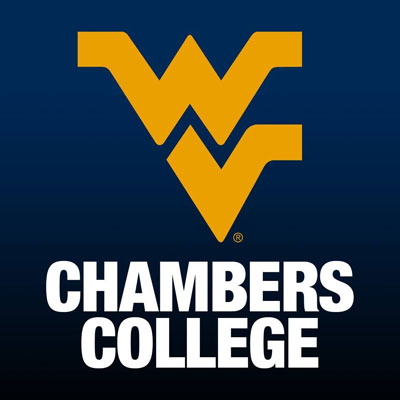Planning a successful event can be a challenge for anyone. However, when your company’s banking on an event to launch a product, entertain potential clients, or any number of other things, the stakes are a little higher than picking the right playlist.
Just ask the students in Professor Frank DeMarco’s hospitality event planning class. Throughout their senior year capstone course, students in the Hardy Family Hospitality and Tourism Management program plan and execute a comprehensive event, applying their learned knowledge in real-world business settings.
2024's event: the inaugural WVU Culinary Competition, held in partnership with the WVU Tech Culinary program. Hosted by Nemacolin Resort, which made a $7 million investment in the Hardy Family Hospitality and Tourism program in 2023, the competition partnered culinary students with professional chefs in a head-to-head battle for edible excellence.
The key to success lay in a framework DeMarco introduced to his planners: the five C’s of event planning, which helped them develop a thorough strategy to tackle the event.
And what better way to explain the five C’s than to have the students do it for us?
Step 1: Concept
By Cameron Mullenax
The concept of any event is essential to establish before planning commences. You have to fully understand the “why” of an event if everyone involved is going to work towards the same goal and ensure it will meet its objectives.
Being a part of the event planning process for the inaugural Culinary Competition with Nemacolin and WVU Tech was an extremely valuable experience that taught me many lessons before entering the real world, like establishing a solid concept before undertaking any event plan.
Because my team established a concept early on, the planning, design layout, budgeting and communication on the day was easier. There are many skills pertaining to leadership, multitasking and professionalism that I can apply to other scenarios in my life.
Working with Nemacolin and WVU Tech has been nothing short of insightful and educational, and I’m eager to see how this event grows in coming years.
Cameron Mullenax is now operations manager at the Courtyard by Marriott Morgantown.
Step 2: Coordination
By Emily Eckenrode
To properly coordinate our event, we needed to create a realistic budget, work with marketing, audiovisual, culinary and decor vendors, and create an effective show flow.
We consistently updated our timeline of events for the culinary competition as we learned more about our chefs' and guests' expectations and requirements. Whether it was communicating with the WVU Tech head chefs, Nemacolin's atelier and conference and catering teams, or our special guests, we constantly had to coordinate with multiple moving factors.
One of the biggest takeaways from this was looking into contingency plans if anything changed day of, which ended up being extremely helpful as we changed some operations right before the event!
Emily Eckenrode is now part of Nemacolin's Accelerated Leadership Development Program.
Step 3: Control
By Chloe Johnson
In events, like all other aspects of hospitality, there's very much an aspect of controlling what you can control. With hospitality being a people-focused industry, you can't control people. It goes against the very idea of making guests feel at home in a hotel, restaurant, or event.
When leading an event as important as the WVU Culinary Competition at Nemacolin, I realized how important it was as a leader to trust my fellow classmates and colleagues. Doing something as simple as delegating tasks day of can mean the difference between a rough event or spectacular one.
When we realize that we can't and shouldn't control everything ourselves, we grow as leaders.
Chloe Johnson is now rooms manager at JW Marriott in Washington, DC.
Step 4: Culmination
By Noah Stalnaker
The culmination in event planning is when all elements of the planning process come together to create a memorable and satisfying experience for all guests. Everything that we as students/faculty/employees worked towards finally came to fruition on the Day of the Culinary Cooking Competition.
Throughout the day I learned a great deal of information from all the staff at Nemacolin; however, one of the biggest takeaways was the art of flexibility. Events always have their twists and turns the day of, but experiencing that firsthand with my team of peers was truly something that cannot be emulated in the classroom without experiential learning.
Noah Stalnaker is now pursuing a master’s degree in Business Data Analytics at WVU.
Step 5: Closeout
By Katie Loayza
The closeout part of the event planning process is an opportunity to reflect on the event performance, solicit internal and external feedback and review the differences between the initial and final budget.
By presenting this section at the end of the course after the event, I learned that we should have been more proactive. A lot of the information required to complete this step was information that we didn’t have but certainly could have asked Nemacolin for.
Event planning doesn’t conclude when the event execution begins. Rather, the planning process bookends the execution.
Katie Loayza is now obtaining a real estate license in Fredericksburg, Maryland.
Learn more about the Hardy Family Hospitality and Tourism Management program.
"Let's Talk Business" is a series of guest blogs written by members of the Chambers College community. All views expressed in this post are the author's/authors' own.
Interested in contributing to Let’s Talk Business? Get in touch here.

